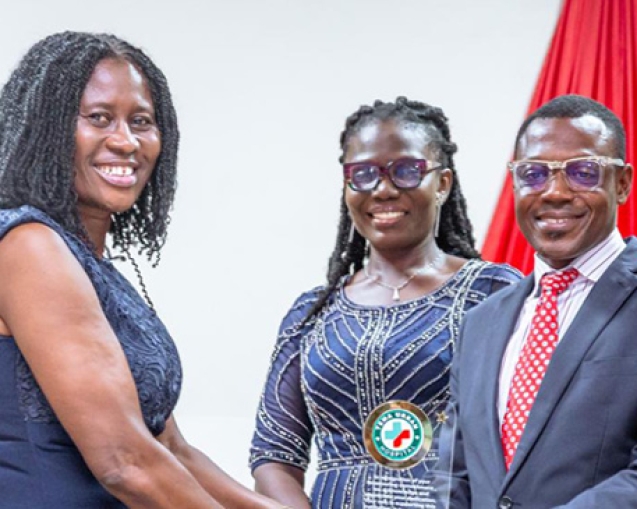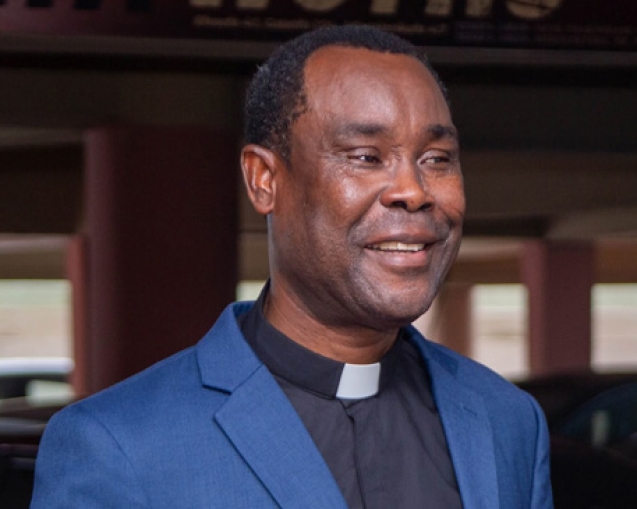Prisons serve as the final point in criminal justice administration since offenders are kept there as punishment for crimes committed. Imprisonment in recent times has transitioned from the era of offender warehousing to that which seeks to cure the precipitating factors that push people into the life of crime. This demands that ‘societal misfits’ are taken through modules aimed at realigning their way of thinking to acceptable societal standards so that offenders re-enter society truly reformed.
Unlike in jurisdictions with best practices, Ghana’s prison system has struggled over the years to develop prisons into real centres of rehabilitation. Successive governments have invested little in this regard leaving most prisons in deplorable states.
It is not surprising in the light of the above that Ghanaians seem to downplay the struggles prison authorities endure to ensure that offenders do not only remain under lock and key, but reform from the life of crime. The unfortunate situation has resulted in public disinterest in complementing the efforts of the Ghana Prisons Service directed at keeping society safe.
A Hero Castigated
In 2019, after years of near unsuccessful attempts at courting public partnerships for the expansion of prison infrastructure, The Church of Pentecost emerged as a worthy partner to fund this essential change. The church, which has contributed substantially to the reformation drive of the Service through evangelism and medical outreaches, had its Chairman, Apostle Eric Nyamkeye, cut the sod for the commencement of construction of five 300-capacity camp prisons across the country.
Refreshingly, the first facility situated in Ejura was commissioned and handed over to the Ghana Prisons Service on the 11th of May 2021. This becomes one of the few purpose-built prison facilities in the country. The facility consists of two dormitory blocks, an administration block, visitor’s lounge, an infirmary, a church building, workshops, a football field and other essential offices.
It is sad to note that news of this magnanimous gesture has been described as a misplaced priority by a section of Ghanaians. The flak has centred around why a church would build a facility to house offenders instead of schools, health facilities and factories. This is a clear indication that most Ghanaians do not see the prison as an extension of society but rather as ‘a devil’s den’ for punishing offenders. It is clear also that, society see little or nothing wrong with the deplorable conditions in our prisons resulting in the seeming disgust after the first pictures of the facility hit the media.
Ironically, society is quick to mention that some incarcerated persons re-enter society unchanged. They say so without realising that our prisons require humane environments equipped with the right infrastructure to take inmates through structured regimes that will ensure that they come out of prison as individuals willing and able to lead law abiding lives.
Congestion Festers into Homosexuality, Diseases and Recidivism
The congestion rate in our prisons stands at around 52% with about 15,000 prisoners struggling for 9,945 spaces. Prison administrators due to the overwhelming numbers are unable to do proper classification of inmates to prevent contamination and limit the exposure of low-risk inmates to their high-risk colleagues. Weaklings who find themselves in same cells as powerful recidivists are sometimes bullied to trade their bodies for sleeping spaces.
Most of Ghana’s prisons are remnants of the colonial era. These forts, castles and armouries are not purpose-built and as such do not present environments that support healthy living. Congestion in these facilities allow for easy transmission of diseases. Though the prison administration over the years has attempted to alter facilities to make them more habitable, outbreaks of communicable diseases suggest that there is the need to invest in building requisite structures to support the wellbeing of offenders. One effect of the situation is that inmates lack the peace of mind and strength required to subscribe to prison rehabilitation programmes.
Another worrying trend in this direction is the fact that, some offenders come out of prison just the way they entered; unskilled. The reason is that trade-learning workshops required to champion the rehabilitation agenda of the Service are non-existent in most prisons. The few ones lucky to have them are highly under-resourced. In effect, most offenders are not able to receive any form of trade training throughout their incarceration. These ex-convicts, under the slightest temptation, relapse into the life of crime after release as a way of survival due to unemployment.
Why Prioritise Prison Reform?
Only a small number of Ghana’s prisoners spend their entire lives in prison, as most of them are released at a point. This is the reason why all should follow the unprecedented example of The Church of Pentecost by contributing to ensuring that offenders receive requisite moral and trade training to support meaningful living upon discharge. It will also ensure that, they serve their sentences without feeling rejected by the society they call their own.
All should note that Ghanaians cannot enjoy sound sleep if ex-convicts re-enter society with the thought that they were unduly punished during their period behind bars. They could engage in crimes as payback for the pains they suffered behind bars. The next time you are tempted to discourage a donor from supporting prison reform, be reminded that the prison is everybody’s second home. It takes the lenses of justice to point to us that we are not saints after all.
By: Daniel Machator, Public Relations Practitioner (machator@hotmail.com)


















